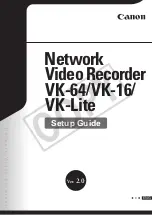
28
| English
1 609 929 R32 | (6.3.08)
Bosch Power Tools
– Push the routing motor to the stop into the
plunge base/non-plunge base.
– When using the non-plunge base
3
, push the
clamping lever
26
and slide the routing motor
1
up or down in the non-plunge base
3
. With
the clamping lever
26
released, ensure that
the routing motor is locked in one of the
3 coarse adjustment notches
27
.
– Close the clamping lever of the plunge
base/non-plunge base
20
. The tightening ten-
sion of the clamping lever can be changed by
carefully adjusting the nut at the clamping le-
ver using an open-end spanner, size 10 mm.
– Adjust the required depth-of-cut; see Section
“Adjusting the Depth-of-cut”
.
Inserting a Router Bit (see figure B)
f
Before any work on the machine itself, pull
the mains plug.
f
It is recommended to wear protective
gloves when inserting or replacing router
bits.
Depending on the application, router bits are
available in the most different designs and qual-
ities.
Router bits made of high speed steel (HSS)
are
suitable for the machining of soft materials, e. g.
softwood and plastic.
Carbide tipped router bits (HM)
are particular-
ly suitable for hard and abrasive materials, e. g.
hardwood and aluminium.
Original router bits from the extensive Bosch ac-
cessories program are available at your special-
ist shop.
Use router bits with a shank diameter of 12 mm
as far as this is possible. Only use clean router
bits that are in perfect condition.
The router bit can be changed when the routing
motor is mounted in the plunge base/non-
plunge base. However, it is recommended to
change the tool with the routing motor dis-
mounted.
– Remove the routing motor from the plunge
base/non-plunge base.
– Hold the motor spindle in place using the
open-end spanner, size 16 mm
29
.
– Loosen the tightening nut
17
with the open-
end spanner, size 24 mm
30
by turning in an-
ticlockwise direction (
n
).
– Insert the router bit into the collet. The shank
of the router bit must be immersed at least
20 mm into the collet.
– Hold the motor spindle in place with the
open-end spanner, size 16 mm
29
and tight-
en the tightening nut
17
with the open-end
spanner, size 24 mm
30
by turning in clock-
wise direction (
o
).
f
Do not insert a router bit with a diameter
larger than 50 mm when the guide bushing
is not mounted.
Such router bits do not fit
through the base plate.
f
Do not tighten the tightening nut of the col-
let without a router bit inserted.
Otherwise
the collet can be damaged.
Dust/Chip Extraction
f
Dusts from materials such as lead-containing
coatings, some wood types, minerals and
metal can be harmful to one’s health. Touch-
ing or breathing-in the dusts can cause aller-
gic reactions and/or lead to respiratory infec-
tions of the user or bystanders.
Certain dusts, such as oak or beech dust, are
considered as carcinogenic, especially in
connection with wood-treatment additives
(chromate, wood preservative). Materials
containing asbestos may only be worked by
specialists.
– Use dust extraction whenever possible.
– Provide for good ventilation of the work-
ing place.
– It is recommended to wear a P2 filter-
class respirator.
Observe the relevant regulations in your
country for the materials to be worked.
OBJ_BUCH-100-003.book Page 28 Thursday, March 6, 2008 10:50 AM
















































